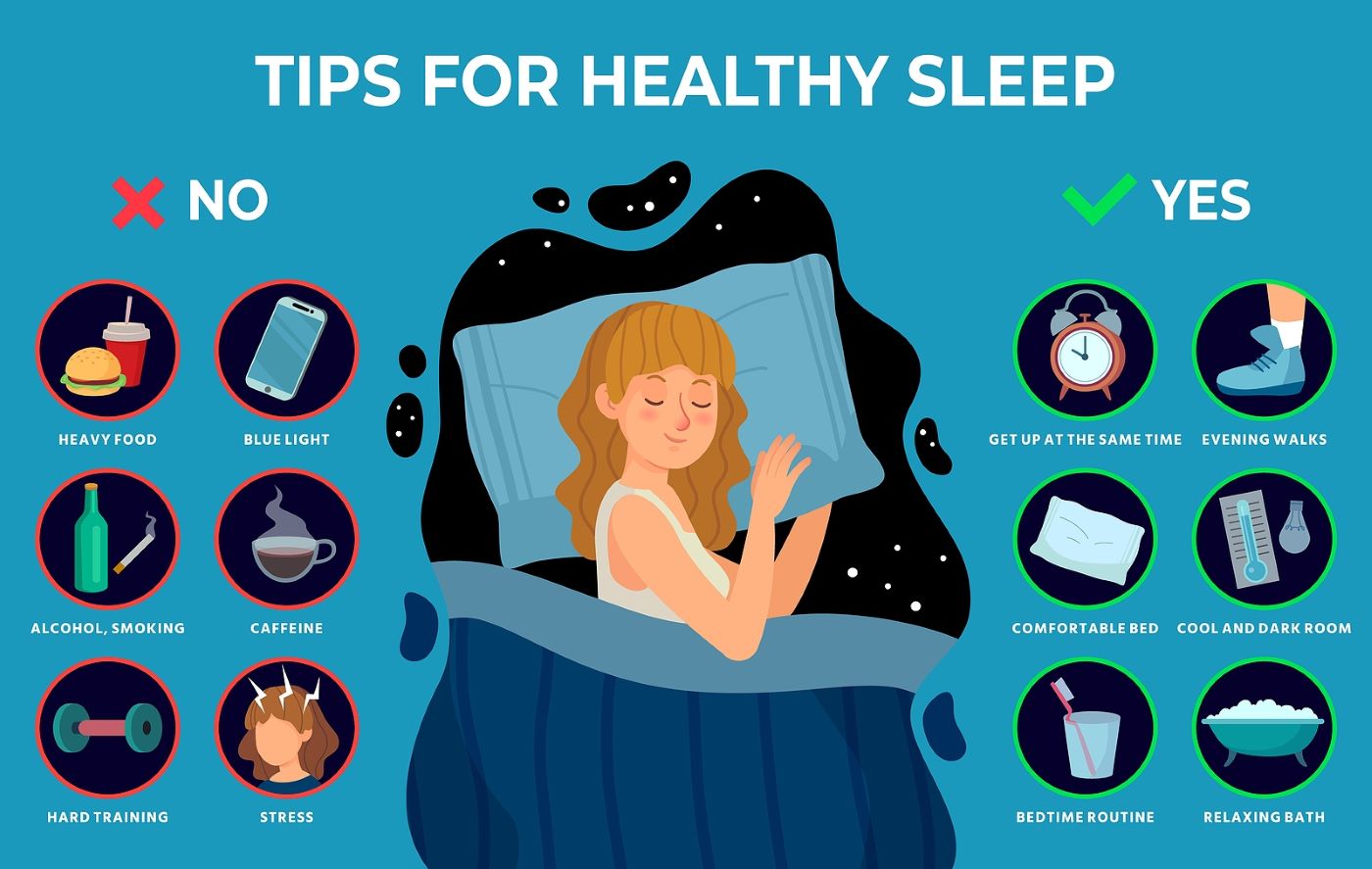
Sleep is a vital human process that helps the brain and body recover from everyday life. Sleep can be a challenge for some people, however, as studies show that poor sleep has negative impacts on mental and physical health.
Research shows that poor sleep quality correlates with different tools measuring well-being, including both mental and physical HRQoL. However, the reliability and validity of self-reported questionnaires assessing sleep quality is not clear.
Poor Sleep Causes Weight Gain
Getting adequate amounts of sleep is essential for mental health. Research has shown that sleep disturbances can exacerbate symptoms of some mental conditions. Insomnia, for example, is a common symptom of depression. Lack of sleep can also cause or worsen mental health problems such as bipolar disorder and anxiety.
Sleep disorders have a negative impact on physical health, as they interfere with circadian rhythms and can alter circulating levels of the appetite-regulating hormones ghrelin and leptin. The result is that people who suffer from sleep disorders are more likely to be overweight or obese.
Interestingly, the opposite is also true: improving sleep can help with a number of psychological conditions. This is because the brain is affected during various stages of sleep, and the relationship between mental and physical health is bidirectional.
Poor Sleep Causes Diabetes
A lack of quality sleep can trigger insulin resistance, which is when your body can’t use the hormone insulin to move blood sugar into cells. This can lead to high blood sugar and increased risk of developing diabetes.
Getting the recommended seven to nine hours of sleep can help prevent insulin resistance and other health issues associated with poor sleep, including obesity, high blood pressure, and depression. But many people have trouble sleeping due to stress, irregular work schedules, light pollution, and other factors.
Studies that evaluated psychometric properties and latent structure of questionnaires measuring subjective sleep quality (PSQI) reported that global PSQI scores correlated with tools that measure well-being from different perspectives, such as the Beck Depression Inventory or Health Survey Short Form 36, while they showed low or negative correlations with objective measures of sleep, such as PSG [32]. The PSQI has also shown convergent validity with other psychometric scales that have demonstrated construct validity.
Poor Sleep Causes High Blood Pressure
Many things can interfere with sleep. Stress, diet and exercise habits, shift work schedules, and environmental factors like noise and light pollution can affect how well you sleep. Other causes of poor sleep include snoring, grinding your teeth (bruxism), talking in your sleep, sleepwalking, nightmares, and insomnia.
Regular poor sleep raises blood pressure, and it is especially bad for women and those over the age of middle age. Fortunately, there are simple ways to improve your sleep quality.
There is a strong association between sleep quality and both physical and mental health-related quality of life. However, different studies use varying definitions of sleep quality. Clarifying the concept can inform patients and practitioners, promote consistent theoretical and operational definitions of the construct, and develop prevention and treatment strategies.
Poor Sleep Causes Heart Disease
While a diet of low-fat foods and regular exercise may be important to your heart health, sleep is equally important. Getting enough sleep helps your body maintain its metabolic balance, and it reduces the risk of developing conditions that can cause heart problems.
In one study, researchers found that people who get less than a good night’s rest have an increased chance of heart failure. The study found that the more signs of poor sleep someone has — including insomnia symptoms, daytime sleepiness and snoring — the greater their risk for developing heart problems.
Sleep disruptions can also lead to an increased risk of stroke, which occurs when a blood clot or plaque blocks an artery and cuts off the flow of oxygen. Symptoms of a stroke include sudden weakness or numbness in your arms and legs, trouble speaking, and difficulty recognizing faces.
Poor Sleep Causes Depression
Depression is one of the many mental health conditions that are negatively impacted by poor sleep. Depression is often accompanied by a lack of energy and motivation and can make it difficult to get the sleep you need.
In addition, common mental health problems like anxiety can also contribute to sleep problems. It is sometimes challenging to know which came first, the depression or the sleep problems, but it’s important to recognize that they are linked and that treatment for both depression and sleep issues can be effective in combination.
Getting enough quality sleep is essential to your overall health and well-being. Getting a good night’s rest helps your body heal, maintain a healthy balance of hormones and improve how you think, react and learn.